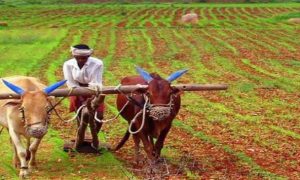The booking of tickets through the app saves a lot of time for commuters and is free to download.
Digitalisation has transformed every sector, and the travel sector is not far behind. Recently, the US administration concluded a successful pilot project for ‘paperless visas’ at the US diplomatic mission in Dublin. The plan is to gradually apply a digital visa system across visa processing as this will replace the traditional practice of physically stamping or pasting visas on the passport.
Julie Stufft, deputy assistant secretary of state for visa services in the Bureau of Consular Affairs, US, confirmed the project, explaining that the paperless process where no physical visa is affixed to a passport has started as a pilot in Dublin. The implementation will take some time but is expected to expand throughout the world. “It would take 18 months or longer to adopt the digital system on a wider scale. We have already done the small pilot. Now we are branching out to other types of visas. We expect to expand that regionally and throughout the world. This also means US visas could be verified through an app or similar means in the near future, with no need for physical documentation,” said Stufft while speaking at a media round table.
The difference between paperless and e-visa
Many countries like Cambodia, Kenya, Australia and others offer e-visas. The paperless version of visa is not like e-visas issued by India to nationals of certain countries, mostly tourists. People can renew their visas without a piece of paper, which means people can keep their passports and send documents through mail. “We don’t call it an e-visa (like India) because we have the same visa process up to the point of the paper. So an interview is still required by law. If you are a first-time applicant, you will apply in the same way with the same forms. If you are getting a paperless visa, it will look all the same until the point where there is no paper,” Stufft said. The US issued more than 1,40,000 visas to Indian students last year and is taking several steps to reduce visa appointment wait periods.
E-visa and its advantage
Traditional visa is an essential travel document issued by the embassy of a country that gives the permission to travel to that country. But the traditional visa process means one has to submit a paper application form, supporting documents, and a copy of the passport to the embassy or consulate of the destination country. However, these procedures could be carried out online for the e-visa. An electronic visa (e-visa) or electronic travel authorisation (or ETA) is stored in a computer and is linked to the passport number so no label, sticker, or stamp is placed in the passport before travel. This type of visa is obtained online via the official government website of the destination country or through an authorised visa service provider. Some countries that provide e-visa facilities to Indian tourists are Australia, Columbia, Georgia, Kuwait, Morocco, Malaysia, Russia, Singapore.
Read More: Special Train to Operate on Patna-Arrah-Anand Vihar Route for New Year, Check Schedule
Digital passports
Digital or e-passports will soon come to India, but Finland has already taken the lead to become the first country in the world to launch digital passports. The e-passport is only valid for Finnish people flying on Finnair to or from London, Manchester and Edinburgh.
An electronic passport (also known as e-passport, digital passport, biometric passport) has data stored on a chip, which stores the biometric data (photograph and fingerprints) of the individual. This will improve the security and will make passports difficult to forge at international borders. It also helps to make travel faster and safer. At several airports, the e-passport allows quick access through security gates. As many as 100 states and non-state entities (like the UN) have introduced e-passports for their citizens, according to the International Civil Aviation Organization.
There are some countries that plan to digitise passports which include the US and the UK, Poland and South Korea. Singapore has introduced a digital health passport called HealthCerts in February 2021, allowing travellers to securely store and present their Covid-19 test results and vaccination records.
The paperless initiative and the move to 2D bar codes (a graphical image that stores information both horizontally and vertically) follows the ‘Simplify the Business’ plan set by the International Air Transport Association. The plan will benefit carriers, airports and travellers by minimising costs and improving the traveller experience.
Read More: In a first, Delhi airport to get CTX & body scanners for cabin bag, flyers
Yatra in India
For smooth and faster travel, the ministry of civil aviation in India has introduced the Digi Yatra programme. The app lets passengers access airport check points only through their facial recognition technology. For the ease of booking a railway ticket, the UTS mobile app is paperless and a popular app especially when it comes to booking unreserved, platform, and season tickets for trains. The Indian Railways’ Unreserved Ticketing System (UTS) mobile application by Indian Railways — Centre for Railway Information Systems (CRIS) is available across platforms — Android, Windows, and iOS versions. The booking of tickets through the app saves a lot of time for commuters and is free to download.
How does it work? One can book different types of train tickets via GPS-enabled Android mobile: normal ticket, platform ticket, season ticket and QR booking. While using this application one can board the train three hours after booking, if booking a platform ticket, the passenger must be within 2 km of the station and lastly, one can purchase seasonal tickets for three, six, or 12 months only. Across Central Railway, 14.76 crore passengers used the UTS Mobile app (in 5 divisions) with earnings of Rs 161 crore and in Mumbai Division 14.44 crore passengers used UTS app with earnings of Rs 155.86 crore, both during April-November 2023.



































